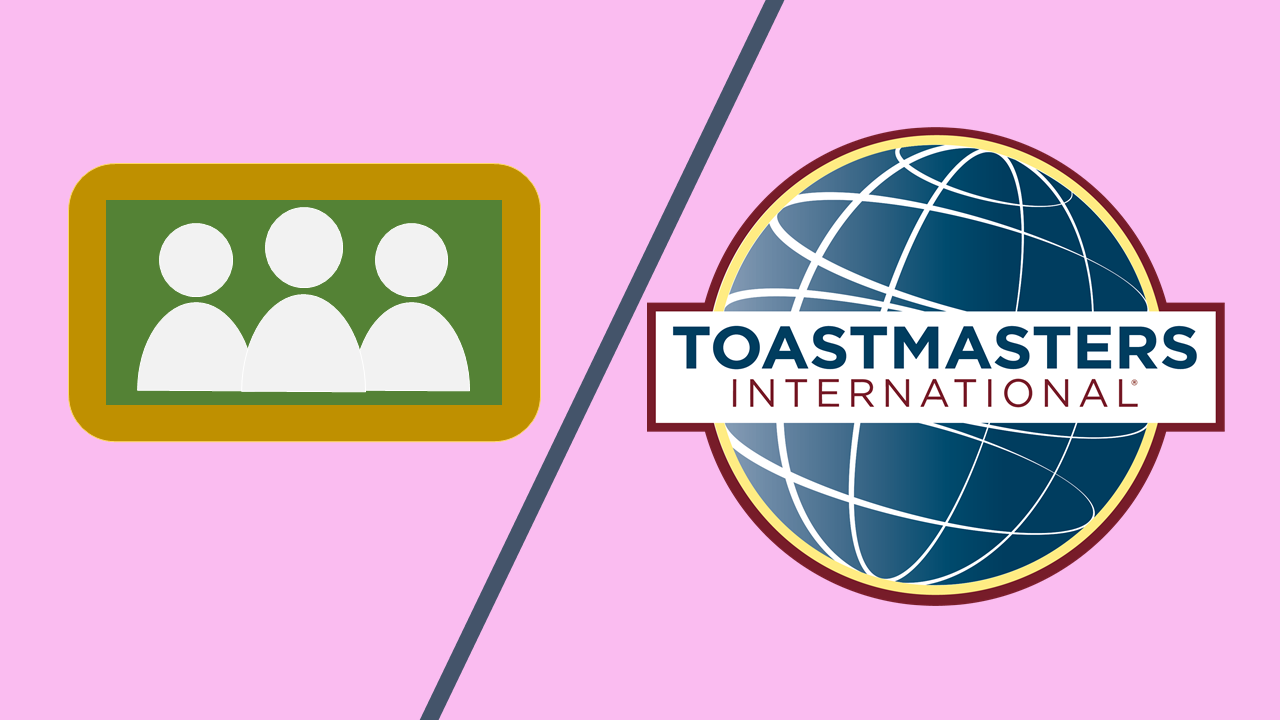Toastmasters or Public Speaking Classes?
Read my experience to help you decide what is right for you!

When I decided to try public speaking, I didn't really know where to start. I knew of these options but it was difficult for me to decide what to take. The classes aren't free but would they be better? Toastmasters seems like a really solid club with support but it also seems a bit cult-like.
Here's a breakdown of my own experience.
Cost
To get it out of the way, I'm starting with the thorniest of subjects. Toastmasters has a $20 annual membership fee. In the case of my office club, our company paid the expense on our behalf.
I have tried out several public speaking classes but they include bootcamps that cost $500 for a one-day workshop, $50 for a one-hour class, and $350 for four 90-minute classes.
Your mileage may vary
When I stepped out into my public speaking journey in early 2019, I started with my office's Toastmasters program. Unfortunately, attendance was inconsistent and critical mass was rare. The club fizzled out and I stopped attending.
A year later, a new person totally overhauled the Toastmasters program for the better. People actually took on roles seriously and attendance has been consistent ever since. I've been attending for 18 months now and owe a great deal of my speaking success to this club.
Of course, to some degree, the same is true with public speaking classes. Not every class is the same or held to the same standard. Over time though, a single instructor (or even a single company) is more likely to be consistent than the leadership of a Toastmasters club.
Curriculum
Toastmasters has a system called Pathways that is the closest thing to a curriculum. It's a series of interactive modules designed to educate on different aspects of public speaking. Each module has a project that takes the form of a speech delivered during the club meeting. It's a clunky approach and given the choice, I would skip it all together.
In formal classes, there was a loose curriculum but they didn't force you to adhere to any path in particular. The more free-form nature made progression easier. The main driver of focus areas was really through the feedback from instructors.
Your responsibility
Your primary responsibility with both options will be consistency. If you don't show up each week, those new public speaking muscles won't last. In terms of classes, there was little to be done in between classes. One teacher did assign some homework but it was easily finished in 30 minutes.
Being the significantly cheaper option, Toastmasters naturally demands much more of its members. Each week, you are expected to take on a role to help run the meeting. You can find the list on the Toastmasters website here. I didn't expect to enjoy this particular aspect of Toastmasters but I have since come to appreciate how these roles force you to be an intentional listener. If you come to join Toastmasters, I would urge you to contribute as much as you can to each meeting. You get back whatever you put in.
Opportunities to get on stage
Both consistently have opportunities to get up in front of real people to speak.
In a stable Toastmasters club, every week should consist of at least one prepared speech and Table Topics sessions. You could even compete against others in your area. Every good Toastmasters meeting will of course include a Table Topics sessions.
In class, we had several different instructors but all of them built in time for practice in front of the group.
Feedback
Public speaking classes easily take the lead here. In all of the classes I took, the trainer would highlight my successes and failures. The negative comments always came with actionable steps. Even if I didn't have a particularly good speech, I felt encouraged.
That's not to say Toastmasters feedback system isn't as good. The quality and actionability is just more variable. Toastmasters gives roles to meeting attendees to enable feedback. Feedback centers around these functionary roles and your feedback will partially depend on who has each role that day.
One role that can really grind my gears is the dreaded ah-counter. This person's function is to notice filler words during the meeting and report them back to the group at the end. As filler words are a particular weakness of mine, I'm always the worst offender in each meeting I attend. The feedback is valid and I am definitely working on it. It's just discouraging to be in that position week after week.
Did I miss anything?
Please let me know by sending an email to holler@mikehardisty.com. I'd love to hear from you!